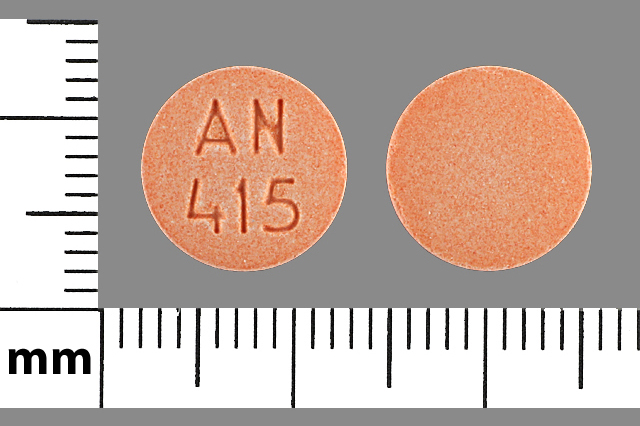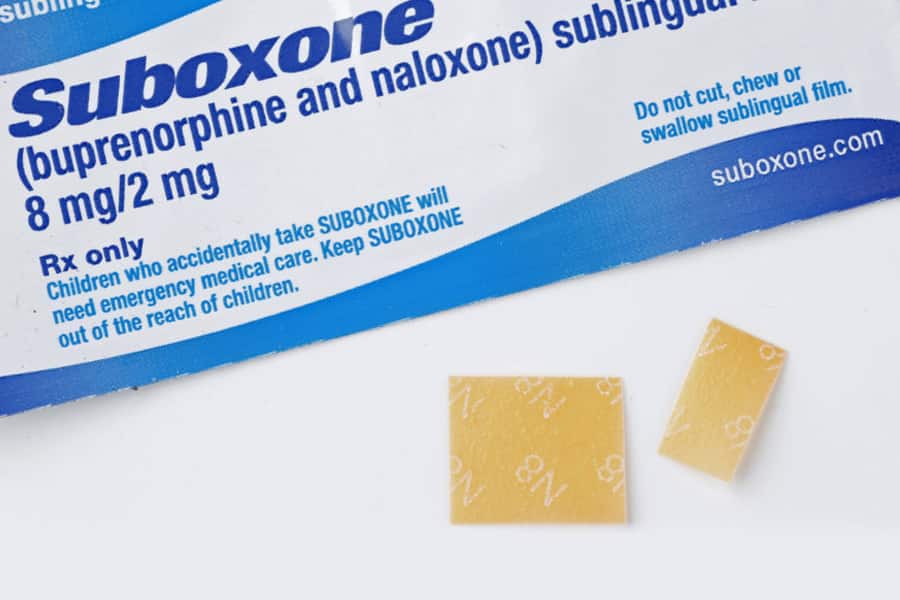Using Suboxone for Treatment
For those in the throes of addiction, taking medication designed to assist in recovery such as Suboxone or Methadone can seem like an attractive path out that can be easier on both the body and the brain. Unfortunately, there is a stigma surrounding the use of these medicines, with some people asserting that their use is simply trading one drug addiction for another. The truth, though, is more complex than it may seem from the outset. Use this guide to better understand how Suboxone and medication assisted treatment work.

Generic Suboxone pill. Photo credit: drugs.com.

Suboxone strips. Photo credit: buprenorphine.io
What Is Suboxone?
Suboxone really is a mix of two drugs: naloxone, commonly known as Narcan, and buprenorphine. When combined to make Suboxone, they create a drug capable of binding to those receptors in the brain that opiates such as heroin and oxycodone do without delivering the same high. If Suboxone is misused or a patient on Suboxone uses an opioid, they do not experience the euphoric effects typical to opiate use because the opioid receptors are blocked by naloxone. Instead, the person will begin experiencing opiate withdrawals.
Because of this, suboxone is a highly effective means of encouraging those with opiate use disorder from the use of illegal and dangerous street drugs. By taking a physician-prescribed daily dose of suboxone, the days of those struggling with addiction are much more manageable and they are less likely to engage in negative behaviors.
Suboxone was approved by the FDA in 2002 for use in the treatment of opioid addiction. A Schedule III opioid partial agonist medication, its approval was the beginning of a broad push toward facilitating treatment for opioid addiction. In recent years, a generic version of Suboxone has been approved and in 2021, steps were taken to give doctors more ability to prescribe Suboxone so that more individuals can more easily receive the treatment they need.
Is Suboxone Addicting?
When considering adopting a suboxone regimen to wean off of opiates, some may worry about developing an addiction to another medicine. There is a distinction between dependence and addiction, however, that often goes unacknowledged. To be addicted to something, the use of it must have a significant negative impact on your life, allowing it to control the decisions you make. The uncontrollable cravings and compulsive use unique to addiction are what cause it to be classified as a disease.
Dependence is something different entirely. Also referred to as “physical dependence,” it simply refers to normal cravings and other consequences that might occur if a drug the body is used to isn’t taken. Most Americans, for example, have a dependence on caffeine, but the need for coffee in the morning isn’t controlling most people’s ability to function and make rational choices.
Those who take Suboxone to help cease other opiate use and cravings may develop a dependency on it in the same way that a person might depend on their morning boost of caffeine to begin their day. Instead of providing a boost of energy, though, Suboxone can keep those who have an unhealthy relationship with opiates from seeking illegal drugs, becoming incarcerated, losing their jobs or custody of their children and the potentially fatal consequences of continued unmanaged opiate usage. In short, Suboxone saves lives.
Does Medication Assisted Treatment Work?
Opiate addicts and their loved ones may be curious if medication assisted treatment is truly effective or necessary. Studies show that the use of recovery medication can be essential in keeping recovering addicts successful in maintaining their sobriety. As with any medication, Suboxone may not be the right fit for everyone, but for many individuals, the long-term use of recovery medication such as Suboxone is a vital part of their treatment plan.
Not all patients will need to take Suboxone long-term, though. For some, short-term treatment is right for them, much as a person with a broken arm might have to wear a cast for the period of time that it takes for the break to heal and the arm to become functional again.
What About the Stigma Surrounding Suboxone Use?
Those who have opiate use disorder or their loved ones may feel as though the long-term use of a maintenance drug is somehow a sign of weakness. It may help to mentally reframe the situation, comparing it to other forms of maintenance drugs. Any number of conditions may require a person to take maintenance drugs in order to function. A diabetic, for example, might be dependent on insulin for the rest of their lives. A person with anxiety may need to take medication every day in order to function well.
Unfortunately, persistent myths about the effectiveness of medication assisted treatment continue to permeate the culture. It is important for those participating in programs that use these medications to help recovering addicts lead healthier, happier lives and those who love them speak out about the important role that medication assisted treatment plays in recovery. By having conversations about this often misunderstood form of treatment, people who are unfamiliar with the details can come to a better understanding of why and how medication assisted treatment plays an essential part in the successful recovery of many who struggle with opioid use disorder.
Ultimately, no person who uses medication assisted treatment as part of their physician-assisted recovery should feel shame for doing so. Having the courage to commit to recovery and follow the research-supported advice of clinicians is the brave, smart and medically-sound thing to do.
What Does Medication Assisted Treatment Look Like in Practice?
In the beginning, Suboxone may be used in a treatment plan at higher doses than it is during typical day-to-day to ease the symptoms of withdrawal. For most individuals, though, Suboxone is a daily medication that is taken once a day, just as a person might take an allergy medication in the morning before beginning their day.
Medication is only one piece of the puzzle that is treatment, though. For some, residential treatment is imperative, particularly in the first few weeks as medical detox is completed. With residential treatment, patients live in the treatment facility in able to make the recovery process as smooth as possible, with the practitioners and experts needed immediately available for any need patients might have.
Detox can be a difficult process for the patient as opioid withdrawal can be a harrowing experience, particularly when not managed with the help of trained professionals. It may take weeks or months for traces of opiates to completely leave the system. The length of time that it takes to detox will vary from user to user and can be impacted by factors such as the specific drugs used and the user’s history of use. When managed by experienced clinicians who understand the needs of patients as they go through recovery, detox is much safer.
As the body detoxes, evidence-based therapies are used alongside skill-building to prepare for life after detoxification. Though the treatment plan will vary based on the individual needs of the patient, therapies that are frequently offered include cognitive-behavioral therapy, contingency management interventions and motivational incentives and community reinforcement.
The care doesn’t only extend to the addict, either. Family, couple and group counseling can all be important components of setting a patient up for success. Addiction can have a profound impact not only on the person afflicted with it but their loved ones, as well. Because of this, it is important for everyone to work together to support the patient so that the best outcomes for everyone may be achieved.
Some individuals who struggle with addiction may have one or more other diagnoses that can affect the way that the issues are treated. For example, someone with opiate use disorder may also have anxiety. This is called a dual diagnosis. In this case, the co-occurring issues are treated simultaneously so that both issues may receive the attention and care they need.
For those struggling with opiate use disorder, Suboxone can be a crucial component of recovery. When managed appropriately by trained professionals, the use of medication assisted treatment can be the cornerstone of a successful recovery. For more information on how Suboxone is used as part of a treatment plan, contact Clean Recovery Centers today.

